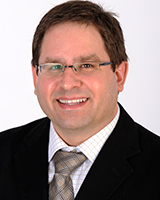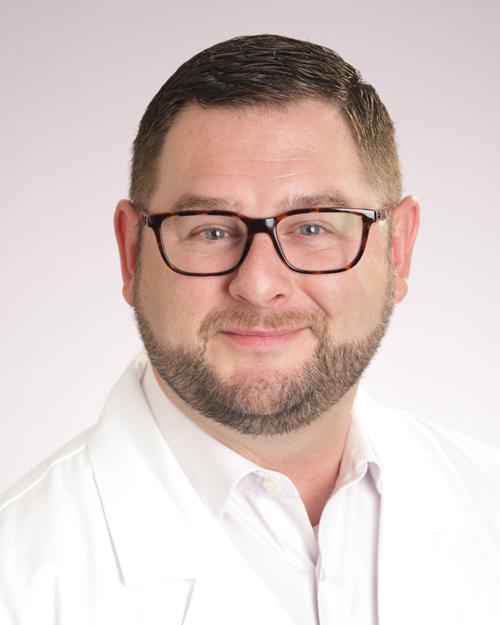As tumor is removed, the shifting brain eventually yields inaccuracies on the preoperative MRI, making the navigation system less valid.
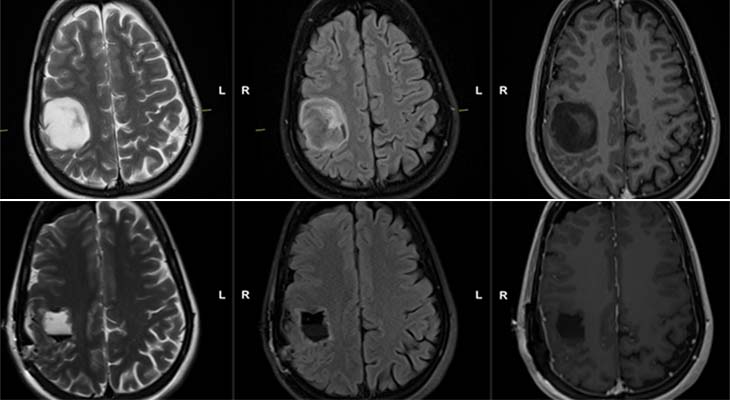
The patient
A 39-year-old nursing student initially presented with complaints of a two-year history of intermittent numbness in the tips of the middle and ring finger on her left hand. Over the past six months, she developed episodic numbness in the left face and twitching in the left eye. An MRI scan demonstrated a brain mass in the right frontal lobe with significant mass effect concerning for low-grade glioma. She was initiated on a trial of Keppra (levetiracetam) for possible seizures.

Preoperative MRI scans demonstrate a right frontal brain tumor with mass effect concerning for low-grade glioma.
The challenge
The primary goal of brain tumor surgery is gross total resection, the complete removal of visible tumor on MRI without injury to functioning brain tissue. The surgical challenge is to maximize tumor removal while sparing healthy brain — that is, to remove enough without removing too much. When a tumor location borders highly functional brain tissue, multiple adjuncts are available at the Norton Healthcare Brain Tumor Center to delineate the precise location of eloquent tissue that cannot be removed without permanent damage.
Specific radiology tests can help identify areas of the brain that activated during specific tasks. A functional MRI scan can help identify areas of the brain that are activated during specific tasks. This test detects changes in blood flow within regions of the brain during specific activities. When the patient was asked to move her fingers, two areas of the brain were identified.
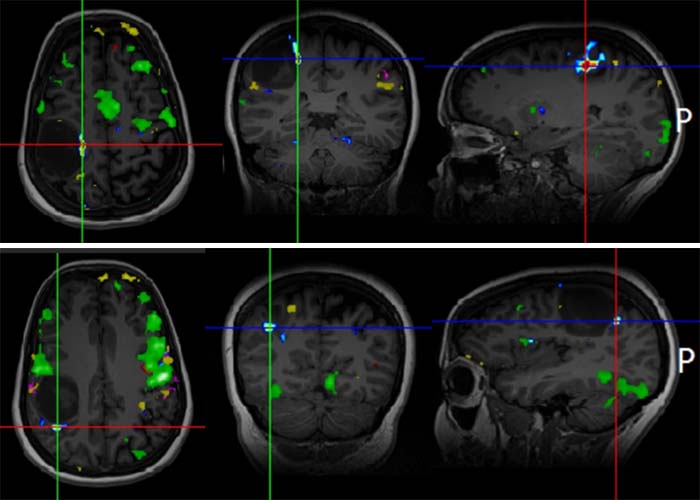
The providers
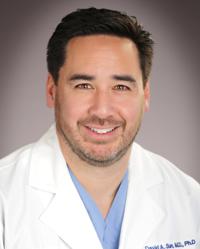
David A. Sun, M.D., Ph.D., neurosurgeon with the Brain Tumor Center and medical director, Norton Neuroscience Institute
The solution
The patient underwent an awake craniotomy with an intended goal of gross total resection. Multiple surgical adjuncts are used in the Brain Tumor Center. A stereotactic navigation system provides localization of surgical instruments on preoperative MRI scans and is useful for planning trajectories to protect healthy tissue and identifying initial tumor boundaries.
As tumor is removed, the shifting brain eventually yields inaccuracies on the preoperative MRI, making the navigation system less valid.
Intraoperative ultrasound provides real-time information as to the extent of residual tumor during surgery and accounts for brain shift. Rapid intraoperative review of tissue samples by the neuropathologist further enhances our ability to safely remove as much tumor as possible.
The result
The patient recovered well from surgery with gross total resection.
She was discharged to home one day after surgery with some mild issues with dexterity in her left hand and numbness in her left face that continued to improve with time. Final pathology confirmed astrocytoma, World Health Organization (WHO) grade 3. Molecular analysis demonstrated MGMT methylation. The patient then underwent standard of care adjuvant therapy with fractionated radiation and concurrent temozolomide oral chemotherapy.
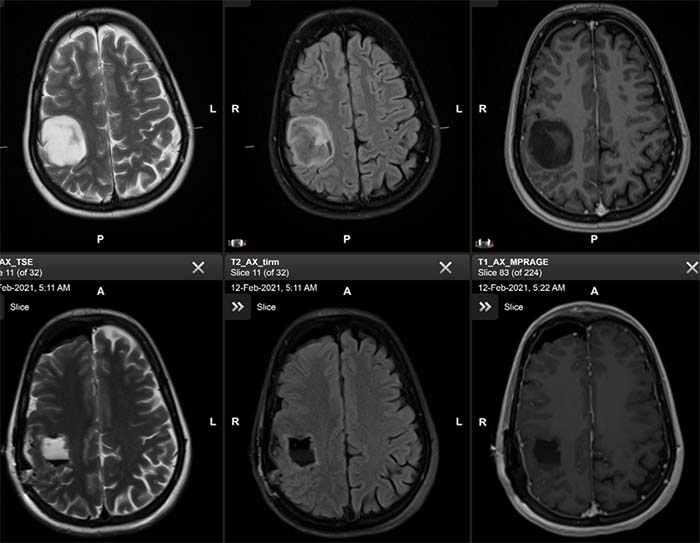
Preoperative and postoperative MRI scans demonstrating gross total resection of the right frontal WHO grade 3 astrocytoma.
Treatment and results may not be representative of all similar cases.
Norton Healthcare Brain Tumor Center
The Norton Healthcare Brain Tumor Center is a collaboration of Norton Neuroscience Institute and Norton Cancer Institute and offers same-day appointments for newly diagnosed patients. This multidisciplinary program offers the latest in treatment options for brain and spinal cord tumors.
Use Norton EpicLink to refer a patient to “Neurosurgery” and add “Brain Tumor Center” in the comments field.
Norton Neuroscience Symposium
This year’s event features specialized neuroscience providers presenting clinical case reviews followed by discussion. Continuing education credits will be provided.
